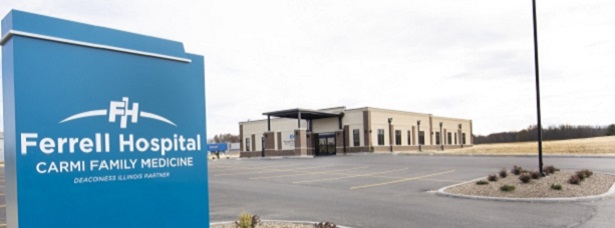Ferrell Hospital
Expanding Services to Rural Communities in Southern Illinois

The federal 340B drug discount program has brought significant benefits to patients of Ferrell Hospital, allowing the rural hospital to open new clinics and offer new services such as mammography and orthopedics. Yet, recent limitations and requirements imposed by pharmaceutical companies could force the hospital to pull back on service expansions.
Changes driven by drugmakers—which undermine the intent of the 340B program—have reduced the savings Ferrell Hospital puts toward patient care and services by a whopping 75%, from $2 million annually to just $500,000 a year.
The 340B drug discount program dates to 1992, when the new federal program required pharmaceutical companies to sell drugs at discounted rates to healthcare organizations, including many hospitals that care for uninsured and low-income patients. The program has helped participating hospitals “stretch scarce federal resources as far as possible, reaching more eligible patients and providing more comprehensive services.”
Ferrell Hospital is located in Eldorado, a southern Illinois city of less than 3,800 residents and with a poverty rate of 27%. The closest major city is Paducah, Kentucky, at 62 miles away. Ferrell Hospital is also a Critical Access Hospital, a federal designation created in 1997 in response to over 400 rural hospital closures across the U.S. during the 1980s and early 1990s. The history of Ferrell Hospital goes back even farther: It has been serving rural residents since 1925, when the hospital grew from a physician’s office located in downtown Eldorado.
Leaders at Ferrell Hospital are concerned that, since 2020, drugmakers have been restricting hospitals to contracting with just one pharmacy; requiring reporting to a California-based technology platform called 340B ESP™, which offers a video tutorial on how to designate a single contract pharmacy in its platform; and leaving the prices off some medications.
“With the limiting access and decreasing the size of the program, our hospital is having to look harder at providing new services to our patients and re-evaluating our current services to make sure we can keep offering them,” the hospital said.
With savings from the 340B program, Ferrell Hospital added clinics 30 miles from its main campus. The money helps the hospital “continue putting resources into growth away from the main campus and expanding into more rural underserved areas. Under the current rules/restrictions, Big Pharma is limiting growth away from the ‘main’ facility.”
With a mission to improve the health and quality of life of the communities it serves, Ferrell Hospital is fighting to ensure drugmakers live up to the promise of 340B—just like hospitals have.

